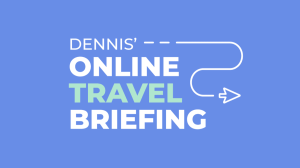Trivago's Hail Mary: Go Big Again in TV Advertising
Skift Take

Dennis' Online Travel Briefing
Editor’s Note: Every Wednesday, Executive Editor and online travel rockstar Dennis Schaal will bring readers exclusive reporting and insight into the business of online travel and digital booking, and how this sector has an impact across the travel industry.Trivago built a global brand as a place to find hotel deals in the years leading up to its 2016 IPO based on a blitz of TV advertising. You couldn't avoid the Trivago Guy on U.S. TV, and his male and female counterparts were equally ubiquitous in markets from Germany to Australia.
In fact, from 2015-2019, the Germany-based hotel price comparison company, majority owned by Expedia Group, spent an average of 82% — that's not a typo — of its annual revenue on advertising, according to BTIG.
In the years since, Trivago has struggled. First, Booking.com, one of its two largest partners, dipped in and out of its levels of advertising spend on Trivago. Then Google's own hotel metasearch product gained more prom

